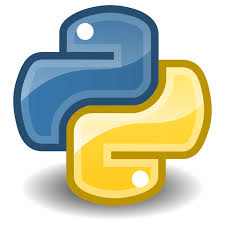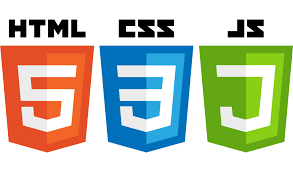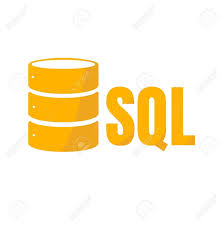Wh Programming Language is Important for Cybersecurity
While it would be impossible for any one person to fill all the roles that make an effective cyber team, it is important for all professionals to have a general knowledge of computer technology. This general knowledge is invaluable in understanding the threats you may come into contact with during your career.
Cyber attacks are not limited to any one type and range from social engineering attacks to SQL injections. As a cyber professional it is important for you to recognize both the causes and symptoms of whatever threat you face. Consequently, while employers may not require that you know how to code, having coding knowledge can really give you an advantage on the job. Coding knowledge can give you the insight you need to recognize what a piece of software is doing, and even if it’s malicious code or not. This is why so many cybersecurity educational programs recognize the necessity of programming and introduce their students to at least an introductory course.
A highly marketable career field in and of itself, programming has the added bonus of rounding out a basic understanding of how computer programs function. For a cybersecurity professional, understanding a programming language can be an invaluable resource in recognizing vulnerabilities in a particular application and how an attacker could exploit those vulnerabilities.
However, no one programming language will provide a comprehensive understanding of every application-level and hardware weakness. For instance, an understanding of C can enable you to spot buffer overflow vulnerabilities in systems software. Familiarity with Perl can assist you in testing applications for errors. Proficiency in JavaScript can be useful in identifying security issues in web applications. And knowing SQL will help you prevent Structured Query Language injection (SQLi) attacks, a specific type of cyber attack that allows an attacker to manipulate SQL statements and penetrate a secure, SQL based database.
Programming languages are usually divided into two groups: high-level and low-level. While high-level programming languages are generally considered easier to learn, low-level languages provide the groundwork for operating systems and other important computer functions. For example, C is the coding language behind the Windows operating system. The language you choose to learn really depends on what you intend to achieve. Below are my top five programming languages for cybersecurity professionals:
Here are the Best programming Languages you should know for Cyber security:
1. C and C++
The C programming language (and C++) is arguably one of the best programming languages for Cyber Security. Billions of devices around the world, including those with a Windows, Mac, or Linux operating system, run on the C programming language. Because C goes a level deeper than higher-level languages like Python or Java, it’s actually much more powerful. Using low-level languages like C gives you direct access to low-level IT infrastructures like RAM and system processes. If not protected, however, hackers can exploit these to cause serious mayhem. C++, on the other hand, is essentially an upgrade to the C programming language. Many programs are written in C++ and require someone with a deep knowledge of the language to identify vulnerabilities in the code.
From a cybersecurity perspective, an attacker who is proficient in C could manipulate all kinds of vulnerabilities in a computer’s system – which makes it equally important for cyber professionals to be able to identify these weaknesses themselves and know how to counter them. And since C is the basis for so many operating systems, there are a substantial amount of attacks that are going after targets that are written in C.
2. Python
Python is used to develop applications, both web-based and software-based, and while it is not as useful as C in accessing low-level computer functions, it nonetheless is increasingly in-demand for web applications, GUIs, network programming, and other important tech features.
Python does not require users to learn how a computer functions at the lowest level, but its versatility as a language is undeniable.
Many hackers use Python to create scripts that do the work for them. One such example is AutoSploit, a tool created by hackers that automatically searches the web for vulnerable users, hacks into their computers, and remotely executes code. And, since no hacking skills are required to operate the program, almost anyone with the intent can download and use such programs to steal information.
3. Assembly
Assembly has the downside of being device-specific, so depending on the architecture you are using the specifics of the language are liable to change – but if you know assembly, you have a solid, inside-out understanding of your computer.
Assembly lets you interact with specific memory locations and computer registers, and gives you an insane amount of control over your hardware. Add to that the fact that assembly just looks insane. Here is our example of “Hello world!” in NASM (Netwide Assembler) language, where you have to specify the address for your output and the exact number of bytes that you want reserved for the program. NASM is used in Linux-based systems – again, the exact type of assembly that you will use depends on your own system.
4. JavaScript
JavaScript is often abused by hackers because it can collect user input and browser data, as well as manipulate webpages to do just about anything. For example, hackers can use JavaScript to track the words you’ve typed into a website, monitor your browsing habits through cookies, and even swap out a legitimate website for a separate website designed for phishing scams.
Although it has been a front-end language for most of the history of the Internet, JavaScript has recently become a server-side language, thanks to Node.JS. This is great for full-stack JavaScript developers, but it adds even more vulnerabilities to JavaScript for hackers to exploit.
5. PHP
PHP is a server-side language that is used to build websites, primarily with WordPress. Approximately 80% of the web is powered by PHP, including social networks like Facebook, which has 2.41 billion active users. PHP has risen to popularity because it makes it easy to update your website. But, this handy feature also makes PHP more vulnerable to attacks from the outside. As a result, PHP is an extremely important programming language to learn if you’re going to work in Cyber Security.
One of the most common “hacking” attempts on PHP-based sites are DDoS (Denial of Service) attacks, which aim to shut down your site. Hackers can even use PHP to delete all of the data on your site if you’re not careful with how you’ve built it. Therefore, knowing how to identify and solve these vulnerabilities in PHP code can save your organization or your client’s entire database.
6. SQL
SQL (Structured Query Language) is used to manage databases and recall the data that has been stored on them. Although you do not see it, whenever you attempt to log in to a website, the password stored in the database is brought up and compared with what you’ve typed into the system.
For this reason, hackers are also able to use SQL to extract sensitive data from organizations and individuals. Hackers do this through SQL injection, which involves finding vulnerabilities in a website and placing their own malicious SQL code inside. With SQL injection, hackers are able to make queries and get access to almost any data they want. This can result in the loss of passwords, bank account information, social security numbers, addresses, and much more.
Resource: start cyber career
The Tech Platform






Comments